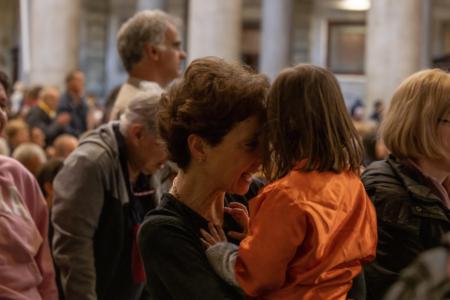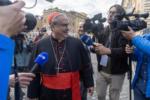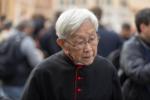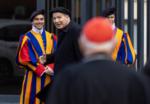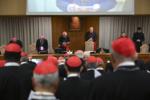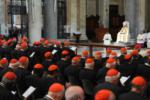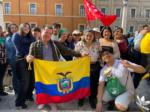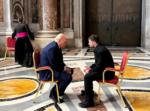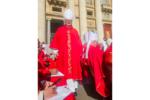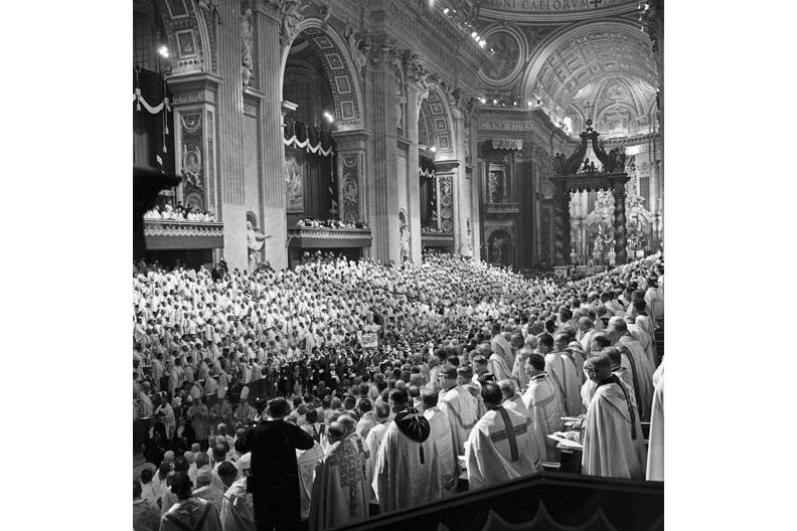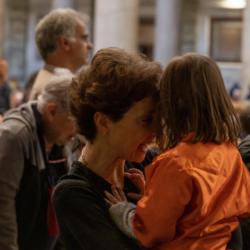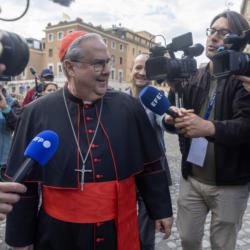Memo to Gen Z Catholics: Why Vatican II is still important
Mr. Adam Lucas, who is "newly married with a baby on the way" (mazel tov!) and "has a Master's in Theology," speaks for a depressing number of Gen Z Catholics when he writes on the Crisis website that "the world of the 1960s is gone, and with it any real relevance of Vatican II." The Council, he concludes, should just be ignored: "After all, aggiornamento demands it."
This is so mind-numbingly wrongheaded that one hardly knows where to start in responding to it.
Mr. Lucas's lament seems to be the result of a number of blogosphere contentions about the Council, ignited by two Ross Douthat op-eds in the New York Times. I hope I won't be thought excessively self-referential, however, if I note that Mr. Lucas fails to mention my recent book, "To Sanctify the World: The Vital Legacy of Vatican II," which is being read by large numbers of Gen Z seminarians and students. These men and women seem to find the book helpful in understanding why Vatican II was necessary, what the Council actually taught (wholly unremarked in Mr. Lucas's article), and how Vatican II was given its authoritative interpretation by two men of the Council, Karol Wojtyła and Joseph Ratzinger, in their Petrine ministries as Pope John Paul II and Pope Benedict XVI. Perhaps Mr. Lucas should also have a go -- and before that baby arrives, after which he will get very little sleep for a while.
But in case he doesn't get around to the book, let me briefly outline why Vatican II, far from lacking "any real relevance" today, is utterly relevant to the chief contentions of the moment.
What is the bottom-line issue in the Catholic conflict over "synodality?" The bottom line, whether in Germany or in preparations for the World Synod of Bishops in October 2023, is whether divine revelation is real and has binding authority over time. The most vociferous proponents of "synodality," like Cardinals Hollerich and McElroy, seem to think not; they imagine that our contemporary experience judges, and corrects, what we have been taught by Scripture and the Great Tradition of the Church. Vatican II's Dogmatic Constitution on Divine Revelation, "Dei Verbum," robustly affirms that God has spoken into history, first to the People of Israel and then definitively in the person of the Incarnate Word. Do we know better than God about what makes for human flourishing and beatitude? The Council says "No." Score one for Vatican II.
What is the bottom-line issue in the culture war afflicting western culture across the globe? The bottom of that bottom line is whether human beings are really just bundles of desires, all of which are morally equal and should be acknowledged as legitimate in the name of human rights. By contrast, Vatican II's Pastoral Constitution on the Church in the Modern World ("Gaudium et Spes") taught that the truth about our humanity is revealed in the life, death, resurrection, and ascension of Jesus Christ. In Christ, we learn that we are creatures of a much nobler nature and destiny, and that self-giving, not self-assertion, is freedom lived in a truly human way. Score another one for Vatican II.
Where do we find answers to post-modernity's quest for authentic human community? Wokery is a world of silos in which race-mania, "gender identity," and "isms" of all sorts are somehow supposed to foster living in solidarity. Vatican II's Dogmatic Constitution on the Church ("Lumen Gentium") teaches that the Church, in which "there is neither Jew nor Greek, slave nor free, male nor female, for you are all one in Christ Jesus" (Galatians 3:28) is the template (the "sacrament," as the Council put it) of authentic human community, the experience of which can lead to building solidarity in society.
Score yet another one for Vatican II.
How does the West rebuild the shattered foundations of its culture? Vatican II, as authentically interpreted by John Paul II and Benedict XVI, teaches that a great awakening to the truths on which our civilization was built will come through a New Evangelization, in which every Catholic (as affirmed by "Lumen Gentium" and by the Council's Decree on the Apostolate of the Laity, "Apostolicam Actuositatem") understands himself or herself to have been baptized into a missionary vocation, bringing others to friendship with Jesus Christ.
Game, set, and match to Vatican II.
Dear Gen Z brethren: Please stop confusing the blogosphere with reality, and please read what Vatican II actually taught. You'll find more "relevance" than you imagine -- or that any of us can deploy in a lifetime.
- George Weigel is Distinguished Senior Fellow of the Ethics and Public Policy Center in Washington, D.C.
